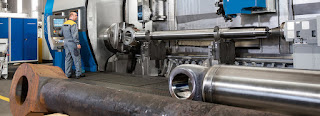- Dieseling
Dieseling is the condition which may occur in internal combustion engines that are ignited by spark plug and that run on petrol. In this type of systems even when the engine is switched off, it keeps running for a short period. This is due to the kicking back of the engine after shut down while drawing the required gasoline from the carburetor into the hot engine and causing it to run even without any spark. The name dieseling evidently comes from the manner in which diesel engines operate because of the compression cycle even without the necessity of firing a spark. Basically, the dieseling phenomenon in gasoline engines is caused by the hot spot in the cylinder and a high compression ratio. It is this combination that sustains the engine to continue running.
Dieseling used to be a fairly common phenomenon till around 1987. Till then gasoline engines had carburetors that were prone to dieseling. Once the injectors and the high pressure fuel pump came in after 1987 dieseling became a rarity because the fuel supply is cut off the moment the ignition has been switched off. However, dieseling can still be seen occurring and this is on account of damaged or dirty injectors due to which a small quantity of gasoline could enter the chamber and ignition could occur even after the engine has been switched off.
- The Prevention of Dieseling
During the period before fuel injection systems were introduced, hydraulic gear pumps manufacturers controlled dieseling by the installation of an electric solenoid in the carburetor’s fuel supply. This solenoid received its electric supply from the ignition coil and on firing of the ignition the solenoid would permit the fuel supply to the engine. Once the engine was switched off the solenoid valve would be closed and would prevent fuel supply to the engine.
Dieseling could also occur in diesel engines. Dieseling in diesel engines could result in the failure of the piston and seals on account of overheating and the admission of engine oil inside the cylinder. There are occasions when a poorly maintained diesel engine could actually accelerate once the throttle is released even when the fuel injection has been switched off. Dieseling in hydraulic systems occurs when the oil in the hydraulic cylinder mixes with the air and causes an explosion whenever pressurized.
- Installation of Anti-Dieseling Rings
Explosions due to dieseling can be prevented by the retro-fitment of anti-dieseling rings on the different pistons in the concerned hydraulic cylinder. One can procure these rings from the shops that sell hydraulic supplies. Thereafter any technician or fitter can carry out the installation when the hydraulic equipment undergoes the next routine maintenance activity. These rings help in the prevention of air getting inside the hydraulic oil when the piston operates its up and down movement.
- Bleeding the Cylinder
Trapped air could be responsible for the hydraulic oil to either ignite or explode due to the compression of the air during the operation of the hydraulic equipment. Bleeding the cylinder once the repairs are completed will help prevent this phenomenon. The oil that is bled out will take the air along with it.
- Monitoring of the Level of Hydraulic Fluid
Frequently explosions due to dieseling occur whenever the hydraulic pump is not able to feed adequate quantities of hydraulic oil within the cylinder and the hoses. This shortage could be due to any leakage which may deplete the oil reserves. On the creation of a vacuum due to the pressurization by the pistons on the small quantity of hydraulic oil air is sucked inside the cylinder. This air mixes with the oil till the point of saturation has been exceeded. The surplus air then results in the formation of bubbles which cause explosions once further pressure is applied. The problem can be prevented by carrying out a check of the hydraulic fluid level before using the equipment. Leakages if any need to be repaired prior to using the equipment.
- Regular Replacement of Seals
Hydraulic gear pumps manufacturers put seals in hydraulic cylinders that help in the prevention of backflows in hydraulic oils when the piston moves. These seals wear out and once this happens the hydraulic oil can seep out through the tiny gaps which also allow air to be sucked inside. Oil and air under pressure can cause explosions. It is necessary to change these seals frequently after inspection.
